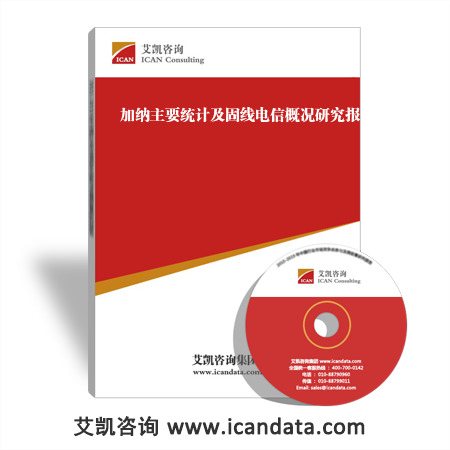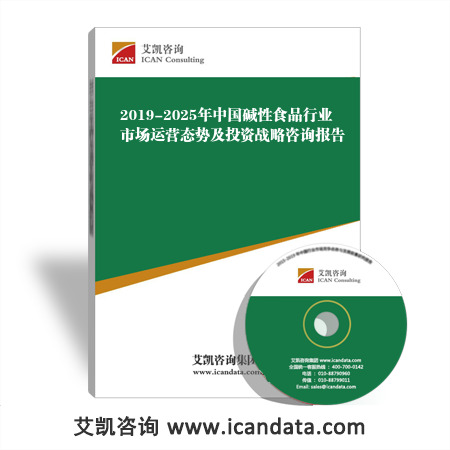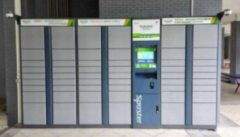数据来源与研究方法:
- 对行业内相关的专家、厂商、渠道商、业务(销售)人员及客户进行访谈,获取最新的一手市场资料;
- 艾凯咨询集团对长期监测采集的数据资料;
- 行业协会、国家统计局、海关总署、国家发改委、工商总局等政府部门和官方机构的数据与资料;
- 行业公开信息;
- 行业企业及上、下游企业的季报、年报和其它公开信息;
- 各类中英文期刊数据库、图书馆、科研院所、高等院校的文献资料;
- 行业资深专家公开发表的观点;
- 对行业的重要数据指标进行连续性对比,反映行业发展趋势;
- 通过专家咨询、小组讨论、桌面研究等方法对核心数据和观点进行反复论证。
报告简介:

摘要
Ghana led the way in telecommunications liberalisation and deregulation in Africa when it privatised Ghana Telecom as early as 1996. Following the exit of the investor in 2007, the company is currently being re-privatised. Similarly, the second national operator, Westel, was re-privatised in 2007. An initial public offering is expected from both companies in the near future. The highly competitive bidding for both companies indicates the huge potential that is seen in the market despite the intense competition from six licensed mobile networks. New submarine fibre optic cables set to reach the country in 2009 will create competition with the current monopoly provider of international bandwidth and support the ongoing convergence of technologies and services.
目录及图表
Table of Contents
Ghana led the way in telecommunications liberalisation and deregulation in Africa when it privatised Ghana Telecom as early as 1996. Following the exit of the investor in 2007, the company is currently being re-privatised. Similarly, the second national operator, Westel, was re-privatised in 2007. An initial public offering is expected from both companies in the near future. The highly competitive bidding for both companies indicates the huge potential that is seen in the market despite the intense competition from six licensed mobile networks. New submarine fibre optic cables set to reach the country in 2009 will create competition with the current monopoly provider of international bandwidth and support the ongoing convergence of technologies and services.
- 1. Synopsis
- 2. Key statistics
- 3. Telecommunications market
- 3.1 Overview of Ghana’s telecom market
- 3.1 Overview of Ghana’s telecom market
- 4. Regulatory environment
- 4.1 Regulatory authority
- 4.1.1 National Communications Authority (NCA)
- 4.1.1 National Communications Authority (NCA)
- 4.2 West African common regulatory framework 2005
- 4.3 New competition framework 2006
- 4.4 Electronic Communications Bill
- 4.5 Electronic Transaction Bill
- 4.6 Universal service
- 4.6.1 The eCARE project
- 4.6.1 The eCARE project
- 4.7 Telecom sector liberalisation
- 4.8 Voice over Internet Protocol (VoIP)
- 4.9 Fixed-line licence conditions
- 4.1 Regulatory authority
- 5. Fixed network operators in Ghana
- 5.1 Ghana Telecom
- 5.1.1 Privatisation
- 5.1.2 Services
- 5.1.3 Tariffs
- 5.1.4 Network infrastructure
- 5.1.1 Privatisation
- 5.2 Western Telesystems Ghana Ltd (Westel, Celtel)
- 5.2.1 Nationalisation 2006
- 5.2.2 Re-privatisation 2007
- 5.2.1 Nationalisation 2006
- 5.3 Capital Telecom Ltd
- 5.1 Ghana Telecom
- 6. Telecommunications infrastructure
- 6.1 National telecom network
- 6.1.1 National fibre backbone
- 6.1.2 Public payphones
- 6.1.1 National fibre backbone
- 6.2 International infrastructure
- 6.2.1 Submarine cables
- 6.2.1 Submarine cables
- 6.1 National telecom network
- 7. Related reports
- Table 1 – Country statistics – 2008
- Table 2 – Telephone network statistics – 2007
- Table 3 – Internet provider statistics – 2007
- Table 4 – Internet user statistics – March 2008
- Table 5 – Mobile statistics – 2007
- Table 6 – National telecommunications authority
- Table 7 – Fixed-lines in service and teledensity – 1995; 1997; 1999 - 2007
加纳固线电信

 Ghana - Key Statistics, Regulatory & Fixed-Line Telecoms Overviews
Ghana - Key Statistics, Regulatory & Fixed-Line Telecoms Overviews














